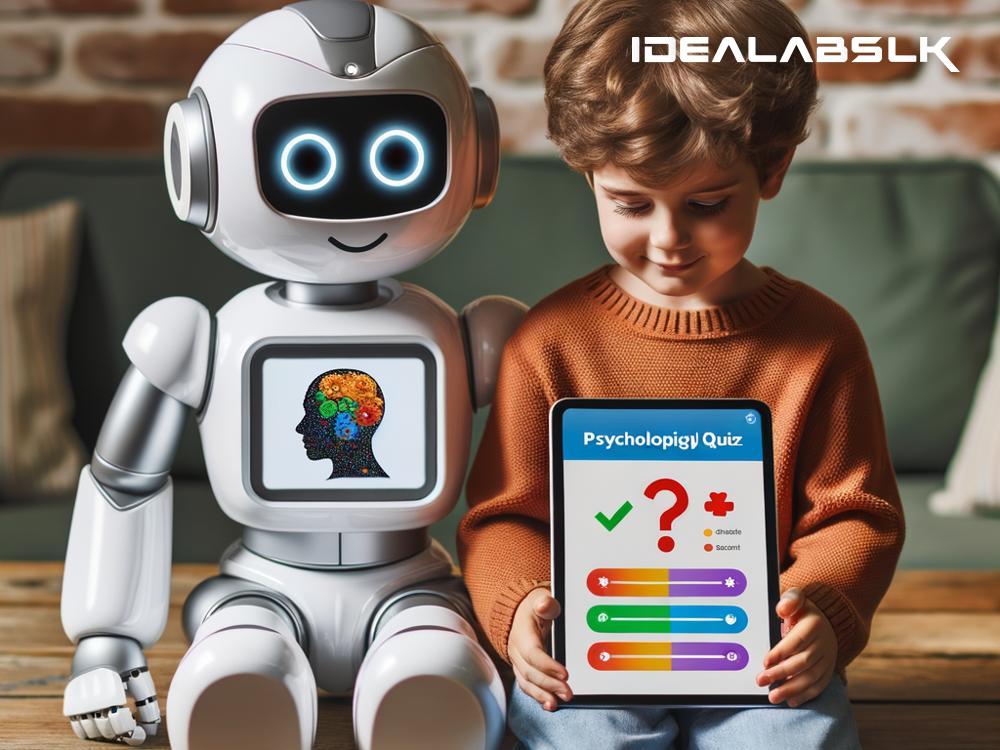How AI is Assisting in Preventing and Detecting Early Signs of Mental Health Issues in Children
In recent years, Artificial Intelligence (AI) has started to play a pivotal role in various sectors including healthcare, and it's making significant strides in assisting with the prevention and early detection of mental health issues in children. This is a groundbreaking step towards providing timely help and support for our younger generation, ensuring they lead healthier, happier lives.
Understanding the Role of AI in Children’s Mental Health
Mental health is as crucial as physical health, yet, it often goes unnoticed, especially in children who might lack the ability to express or understand their feelings. This is where AI steps in, bringing innovative solutions that can identify potential mental health issues at an early stage, making it easier to manage or even prevent them from escalating.
How Does AI Help?
1. Monitoring and Analysis: AI tools are capable of monitoring children's behaviors through various methods, including interactive apps and games. These tools can analyze patterns that might indicate a mental health concern, such as changes in speech, social interaction, and activity levels. For instance, AI can detect if a child’s speech pattern changes unusually over time, which could be a sign of stress or anxiety.
2. Social Media Insights: Social media can have a huge impact on a child’s mental health. AI algorithms can analyze children’s activities on these platforms to catch early warning signs of issues like depression or bullying. By evaluating the sentiment behind posts and the frequency of interactions, AI can help in identifying children who might be at risk, facilitating early intervention.
3. Educational Tools and Games: AI-driven educational tools and games can play a massive role in recognizing and even addressing mental health issues. Some AI applications use interactive methods to teach children how to deal with emotions, stress, and anxiety effectively. These tools are designed to be engaging, ensuring that children learn valuable coping mechanisms in a fun and interactive way.
4. Customized Support: One of the significant advantages of AI is its ability to offer personalized support. Based on the data collected, AI systems can suggest customized activities or exercises for children to help them manage their mental health. These personalized plans can make a world of difference in providing the right support at the right time.
5. Teletherapy and Online Counselling: AI has also revolutionized access to mental health support through teletherapy and online counseling platforms. These platforms use AI to match children with the appropriate therapists and track their progress over time. This has opened doors for timely and convenient mental health support for children and their families.
The Future is Bright, Yet Careful
While AI presents promise in aiding early detection and prevention of mental health issues in children, it’s essential to tread carefully. The accuracy of AI tools depends on the data they are trained on, which means there’s a need for continuous improvement and validation to ensure they are effective across diverse groups of children.
Furthermore, the use of AI in monitoring and analyzing children's behavior raises ethical concerns related to privacy. It's crucial that these tools are developed and used in a way that respects and protects children's privacy and data security.
In Conclusion
The role of AI in preventing and detecting early signs of mental health issues in children is undeniably transformative. It offers a beacon of hope for early intervention, ensuring that children receive the help and support they need to navigate their emotions and challenges more effectively. As technology continues to evolve, the potential of AI in this field is boundless. However, it’s equally important to approach this innovative solution with caution, ensuring we prioritize the well-being and privacy of our children above all. With the right balance, AI can significantly contribute to fostering a mentally healthy and resilient future generation.

